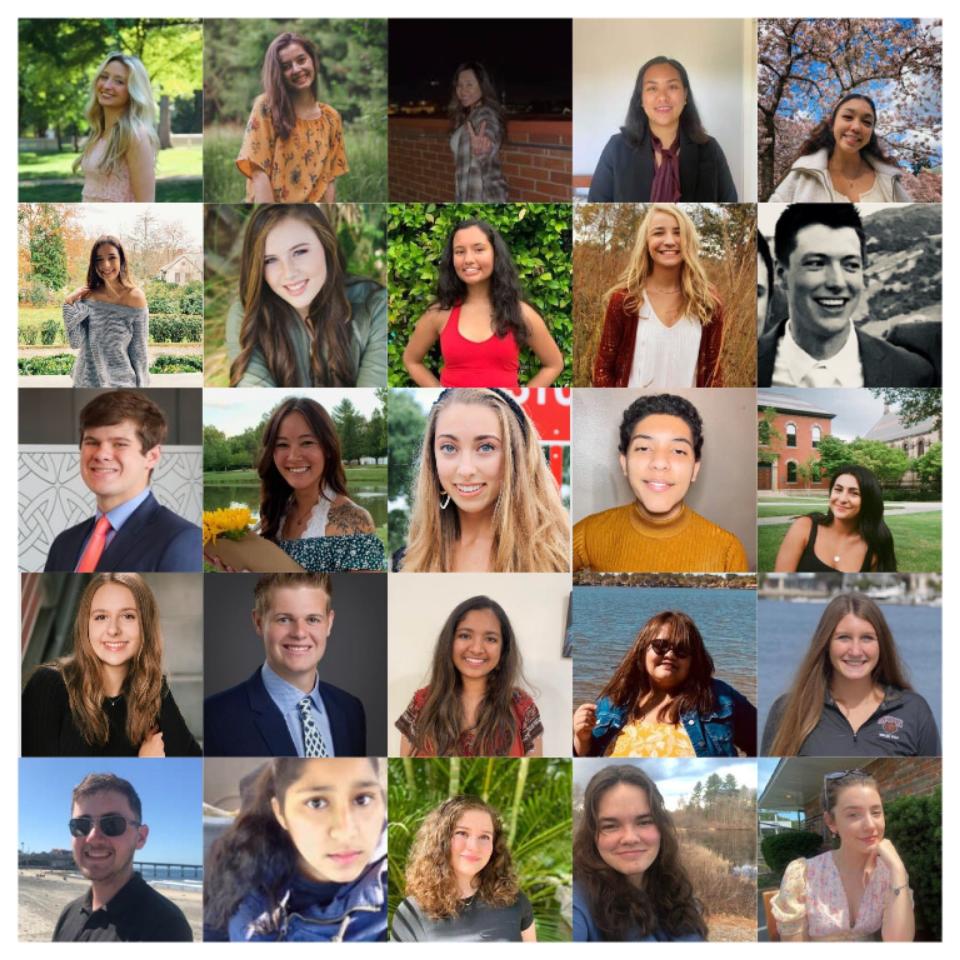'We believe our friends': College students form coalition to combat vaccine misinformation and encourage shots
Following an initial flood of interest, U.S. COVID-19 vaccination rates have slowed dramatically and young adults are among the holdouts. Now, some college students are working to change that.
The Covid Campus Coalition, a network of students across 23 universities, is working to reach young people and cut through vaccine misinformation with social media campaigns.
The group is particularly concerned that infections are now on the rise across the nation as the delta variant spreads rapidly. As back-to-school season looms, this student group is urging young people to get vaccinated – for themselves and for others.
"Especially as a young person, not only will people who we care about be endangered again, it could definitely severely impact our college experience," Jordan Tralins, a junior at Cornell University, told USA TODAY. "We could potentially go back to lockdowns and miss out on more fun activities that we love do and that really define this point in our lives."
Tralins was driven to form the coalition after noticing misinformation and conspiracy theories about the vaccine circulating online. The coalition uses Instagram and TikTok to share scientifically proven information on the vaccine and encourage young people to get the shot.
"Most people from my generation don't spend their free time sifting through scientific literature to formulate opinions about scientific matters. We really look at what's on our social media pages," Tralins told USA TODAY.
James Lifton, a sophomore at Texas A&M who works as an ambassador for the coalition, has used Instagram to post statistics about the virus, advertise vaccination clinics on campus and connect with student organizations that can use their clout to promote vaccines.
With the new school year right around the corner, he is now encouraging students at Texas A&M to have discussions about the vaccine with their friends and family. He believes that this is the best way to change individual opinions and foster a communal effort to stop the spread of COVID-19.
Gen Z's reluctance: Gen Z wants to 'wait a little bit' to get COVID-19 vaccine. Experts say there's no time to waste.
Cases on the rise: 'I'm sorry, but it's too late' – unvaccinated patients beg for shot; new infections nearly triple in two weeks: COVID-19 news
Experts agree that over the course of the pandemic there has been a failure to communicate risk and responsibility with young people. In the early days of the virus, the public health community's messaging was geared toward older people and vulnerable populations.
This failure to communicate risk to younger populations early on has contributed to a spirit of "invincibility" that already guides many young people, Lifton said.
Yotam Ophir, who researches health and science communications at the University at Buffalo, said messaging on any health topic from the dangers of smoking to the importance of sunscreen is most effective when it communicates personal risk and reward.

The benefits of the vaccine are clear to high-risk populations who know that contracting the virus could mean death. But for young people who have watched their friends contract the virus and recover, sometimes without any symptoms, the need may be less clear.
Allyson Levin, a communication professor at Villanova University, told USA TODAY that one of the most effective ways to get a large percentage of young people vaccinated is to make vaccination a social norm – a healthy peer pressure.
Ophir said communications research from the last 30 years shows that teenagers are most influenced by their peers and social environment.
Along with the Covid Campus Coalition's localized efforts, the national government is taking steps to normalize the vaccine, too.
The National Institute of Health has recruited celebrities and social media influencers to promote the vaccine with Dr. Antony Fauci, the nation's top infectious disease expert. In July, the White House invited pop sensation Olivia Rodrigo to encourage youth vaccination at a news conference. The collaboration was trending on Twitter the same day.
Lifton is optimistic about the way forward now that public health officials are utilizing the power of social media to make vaccine information compelling and accessible. "Once you get people to see the stuff you're posting it will spread," he said. "That's how you get students to trust the data. We believe our friends."
This article originally appeared on USA TODAY: COVID vaccine misinformation: College student group encourages shots

 money
money 